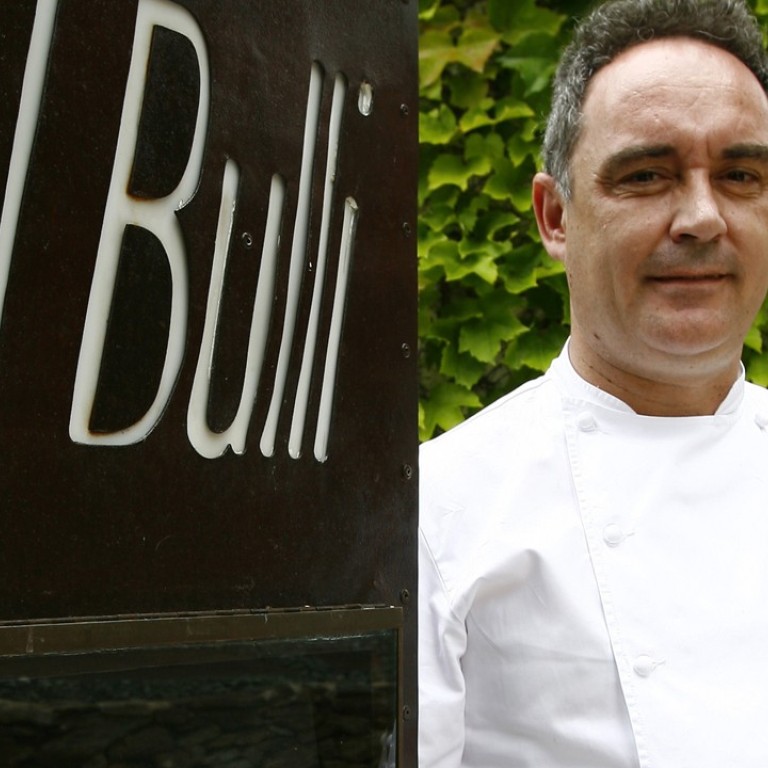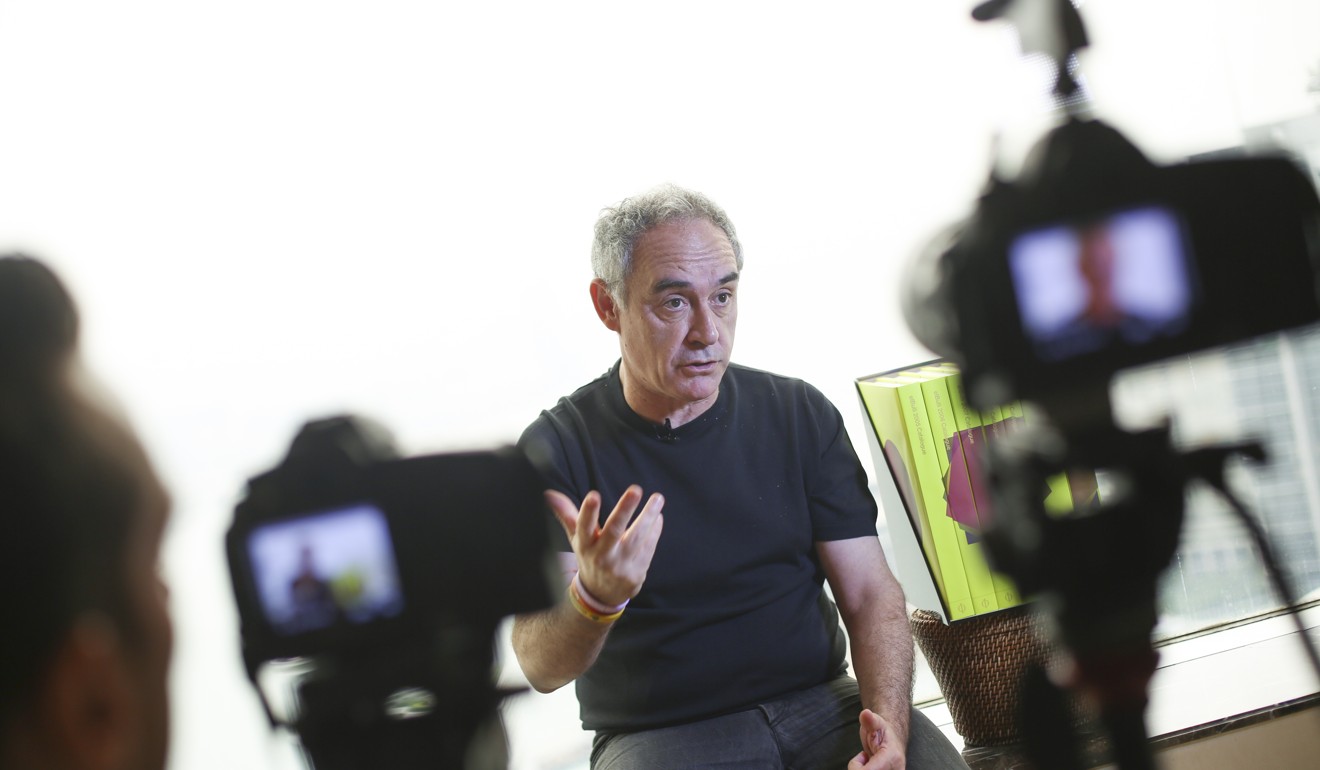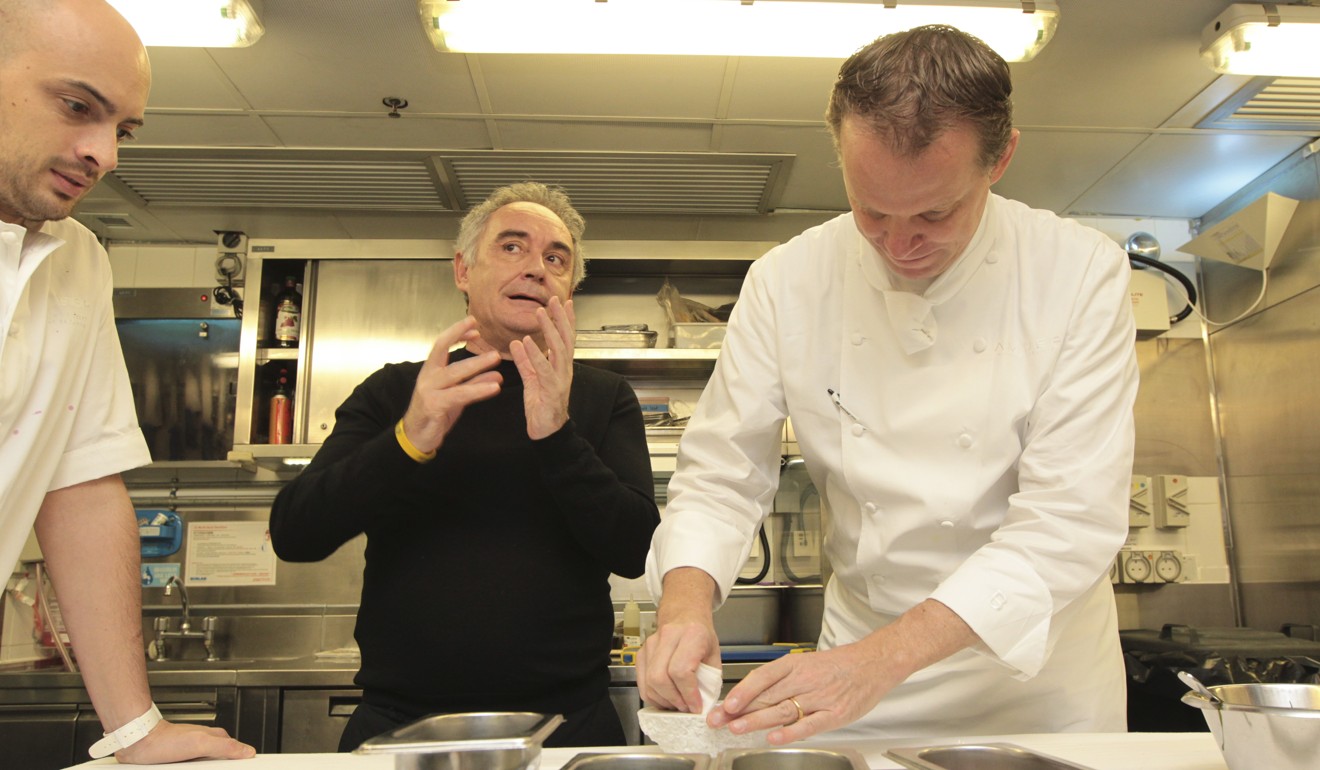
Why Ferran Adria, world’s top chef, won’t go back to the kitchen – and what he’s doing instead
Father of molecular gastronomy says his legacy is alive and well years after his famed El Bulli in Spain closed, explains why it would make no sense for him to open another restaurant, and talks about Amazon Prime series on his career
Ferran Adria – “the most influential chef in the world” – is a man on a mission. Just not one that involves him having to run a restaurant.
The Catalan – whose El Bulli restaurant was named the best on the planet a record five times – is out to prove that the wildly experimental dishes he pioneered there still cut the mustard.
In the seven years since he unexpectedly shut the storied restaurant on Spain’s Costa Brava with 3,000 people still on the waiting list for a table, simpler, more earthy cooking has come into vogue.
But the father of molecular gastronomy, who brought the world the idea of “mandarin air”, eating smoke, caramelised quails, trout egg tempura and any number of foams and emulsions, says he has not stood still.
Ferran Adria and Hong Kong’s Richard Ekkebus on that HK$10,888 dinner
“I have not stopped working” nor experimenting, he says, since he shut El Bulli, which held the maximum three Michelin stars.
Back then Adria admitted that he was feeling a little jaded, but, as he explains in a new, 15-part documentary series about his incredible rise from dishwasher to culinary superstar, El Bulli: Story of a Dream, which begins on Amazon Prime on Monday, he has well and truly got his mojo back.
It is just that he doesn’t want to go back to cooking at the stove day and night.
“It makes no sense for me to open a restaurant,” he says. “Why would I do that? Almost all the greatest chefs in the world – with a few exceptions – no longer actually cook. They taste, direct and conceive.”
Adria has, however, helped his brother Albert open six establishments in Barcelona, of which one, Enigma, he described as a “baby El Bulli”.
It came 95th in the latest World’s 50 Best Restaurants list.
Chef Riccardo di Giacinto on working under Ferran Adria and Marco Pierre White
Instead he teaches at Harvard University, gives advice, and runs the El Bulli foundation, funded by €12 million of private capital from the Spanish giants Telefonica and CaixaBank and the Italian coffee company Lavazza.

A natural enthusiast every bit as whimsical and surprising in the flesh as his cooking, Adria is more concerned about bringing on the next generation of master chefs.
He had a big hand in forming the trio of talents who have replaced him at the top of the global gastronomic tree: fellow Catalan Joan Roca (of El Celler de Can Roca in Girona), Italian Massimo Bottura (of Osteria Francescana in Modena) and the Dane Rene Redzepi of Noma fame.
“I’d say 95 per cent of the restaurants I have helped have been successful,” he says.
Adria, who is still only 56, is also working on a gastronomic innovation centre on the site of the old El Bulli at Cala Montjoi, which is due to open next year – five years behind schedule.
Rather than molecular cuisine, he prefers to call his cooking “techno-emotional”.
“They say that I am out of fashion, that no one makes espumas [his light-as-air mousses] any more. But thousands of restaurants across the world now use siphons,” says the man The Guardian once called “the most imaginative generator of haute cuisine on the planet”.
Ferran Adria: a man with a very big plan
He says his mission at El Bulli was to discover “the limits of the gastronomic experience”. In 17 years there he created 1,846 recipes, including a “crispy liquid”, a mousse of white beans and sea urchins and powdered foie gras.

Adria says he hopes the Amazon series, based on a previous television series about his work, will help demolish some of the myths about El Bulli, which sparked controversy because of its use of chemical additives.
“Salt is a lot worse for the health than any stabiliser,” he says.
Another of his new passions is a project he calls his “Bullipedia”, an enormous gastronomic encyclopaedia for which the autodidact has plunged himself into studying 400 years of French cuisine.
“It is one of my big sources of inspiration” at the moment, he says, along with Chinese, Mexican, Peruvian and Japanese cooking.
While the British and American press like to see Adria as a symbol of the new hegemony of Spanish haute cuisine over the French, he says he was a “child of French nouvelle cuisine”, citing Michel Guerard, the Troisgros clan, Paul Bocuse and Alain Chapel as his main influences.

.png?itok=arIb17P0)